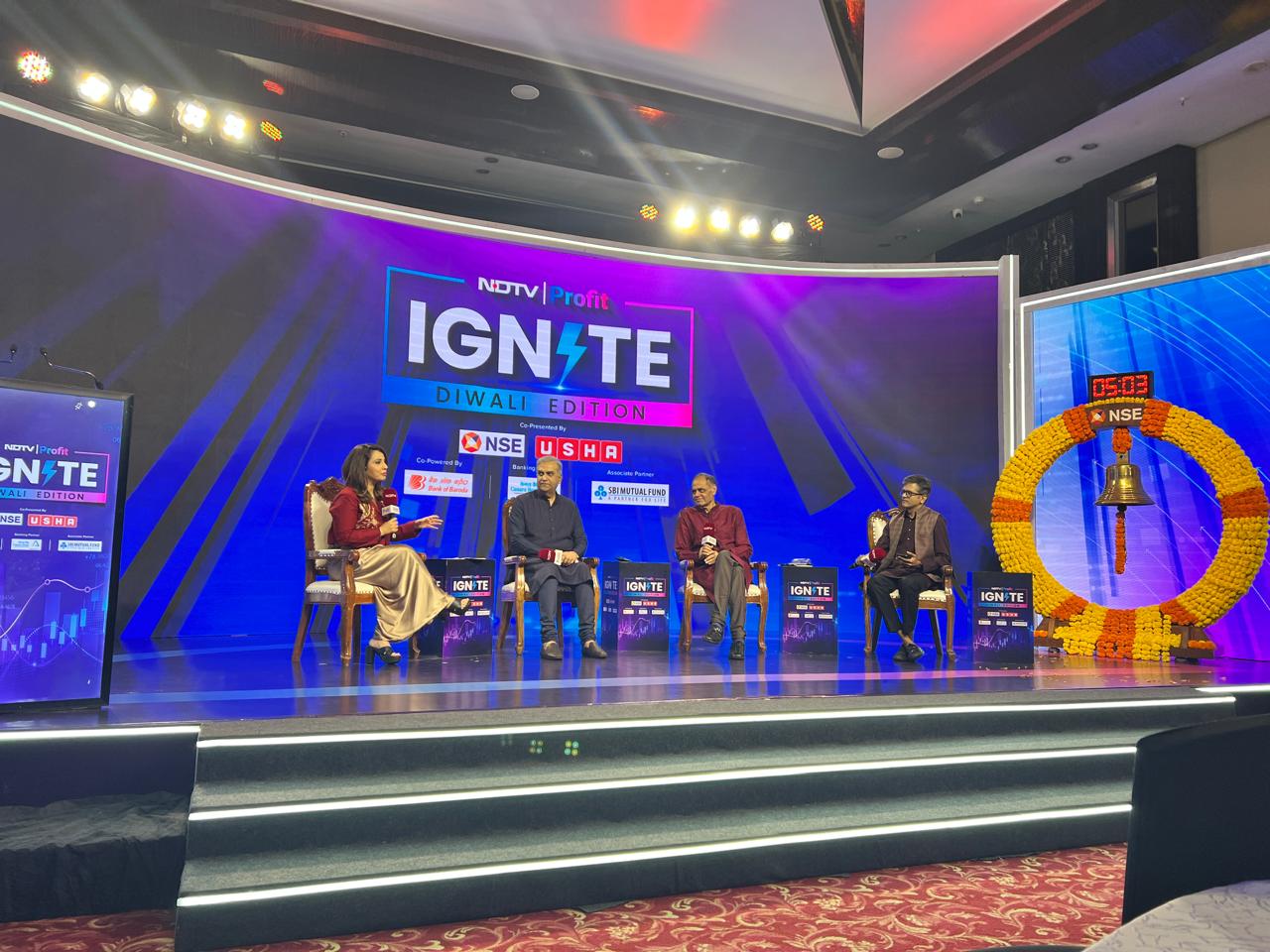
- India’s next multibagger firms will emerge from informal markets, said Manish Chokhani
- The director of Enam Holdings said the stock market has broadened from large firms to many mid-sized companies
- Investors should seek companies with potential for profits justifying current valuations over '10-15 years'
India's next multibagger companies will come from sectors that organise informal markets and take share from state-run enterprises.
That's according to according to Manish Chokhani, director of Enam Holdings, who believes that—India's stock market—once concentrated among a few large firms, has now widened to include hundreds of profitable mid-sized companies. This broader base, he said, is creating new opportunities for long-term investors.
“There's no fixed mantra in investing,” he said while speaking at NDTV Profit IGNITE Diwali Edition event during a panel discussion alongside ace investor Ramesh Damani in Mumbai on Friday. “You build from the bottom up and look for opportunities as they appear.”

Chokhani's view reflects a broader shift in India's investment landscape — from traditional blue-chip companies to businesses formalising informal sectors such as retail, logistics, and services. These firms, he said, are likely to drive the next wave of value creation, much like private players that replaced public monopolies in earlier decades.
“Companies like Titan and Trent grew by organising informal markets. Zomato is doing the same today,” Chokhani said. “When you land at an airport or make a call on Jio, you're using services that were once operated by the government.”
He added that the potential for such companies is often larger than what investors imagine early on. Quoting his mentor, Chokhani said investors should only back businesses whose future profits could one day justify their current valuations, even if it takes a decade or more.
“It may take 10 or 15 years,” he said. “If you can't imagine that, don't invest. You're not looking for 20% or 30% returns. You're looking for 50x or 100x outcomes. You only need four or five of those in a lifetime.”
He explained that the 1990s rewarded investors who backed companies taking market share from public enterprises. In the 2000s, success came from those expanding into global technology and pharmaceutical markets. The next decade saw commodity and infrastructure players gain scale. In the past ten years, growth has come from firms that organised fragmented sectors.
Essential Business Intelligence, Continuous LIVE TV, Sharp Market Insights, Practical Personal Finance Advice and Latest Stories — On NDTV Profit.























